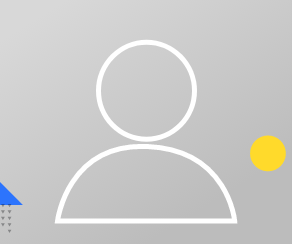Martial Taillefort, Ph.D.

Martial Taillefort
Professor
Georgia Institute of Technology
B.S., M.S., Chemistry, University of Geneva, Switzerland
Ph.D., Civil Engineering, Northwestern University, Chicago, IL
Early in his career, Martial Taillefert was struggling to choose between academia and industry. The ACS Career fair helped him find industry contacts to speak with and the career consultants helped refine his resume.
He chose academia, and Taillefert is now a Professor of Geochemistry at Georgia Tech. He feels that an academic lab offers the best combination of opportunities. “I really enjoy combining teaching and research simultaneously, as teaching forces me to remember the theory that I can use in my research,” he says. “I have the freedom to run my group the way I want. I always joke I am running a business without having to provide my own funding.”
“We focus on redox interfaces, mainly, as many metals are influenced by the redox state of the environment. Metals of interest include uranium and arsenic, for example, which are dangerous contaminants in freshwater environments (our main source of drinking water),” Taillefert explains. “At the same time, we are interested in characterizing the processes regulating the transformation of manganese and iron oxides which are involved in the carbon cycle but are also good scavengers of contaminants.”
Taillefert’s lab gathers natural samples to characterize chemically. “Using this approach, we have found that the toxicity of arsenic and uranium affects microbial communities and promotes unexpected behaviors. Similarly, we have identified new biochemical pathways involved in the reduction of manganese and iron oxides by bacteria. Finally, we have recently demonstrated that metals such as iron and manganese are directly involved in the transformation of nitrogen in sediments, which may help improve our understanding of the different reactions that transform this essential element for life.”
Though his research now focuses on more applied problems, Taillefert recommends that undergraduate students get a fundamental background in physics or chemistry to acquire the skills and tools that can be used for real world applications.
Secure a unique niche or possess unique tools that can help in the grant proposal writing, which can be extremely competitive.
Work environment:
In my office I have a computer, desk, shelves, file cabinets, meeting table.
Work schedule:
I'd say about 50 hours per week with some travel... but I don't call doing research work!
Best productivity trick:
I check email only two to three times a day.
Best career advice you've received:
I'd say two things: First, do not overcommit yourself for the sake of professional success (difficult to realize practically). Second, secure a unique niche or possess unique tools that can help in the grant proposal writing, which can be extremely competitive.
Skills or talents that make you a good fit for your job:
I am passionate about geochemistry and environmental chemistry and I love applying first principles of chemistry to environmental and geochemical problems. I am also not afraid to fail and am rather motivated by criticism.
Essential habit you wish you'd started earlier:
I schedule weekly individual meetings with my students. Earlier in my career, I did not realize that students need feedback on their research on a regular basis. These meetings force me to think about a specific project in more depth. At the same time, it provides an outside view of a data set or an experimental design to the students that helps them address potential issues.
Favorite ACS resource:
ACS National Meetings. I always learn something new when I go to these meetings. Going to meetings help me network with fellow scientists and meet prospective students. Giving talks at these meetings (almost always guaranteed) helped me with my presentation skills.

